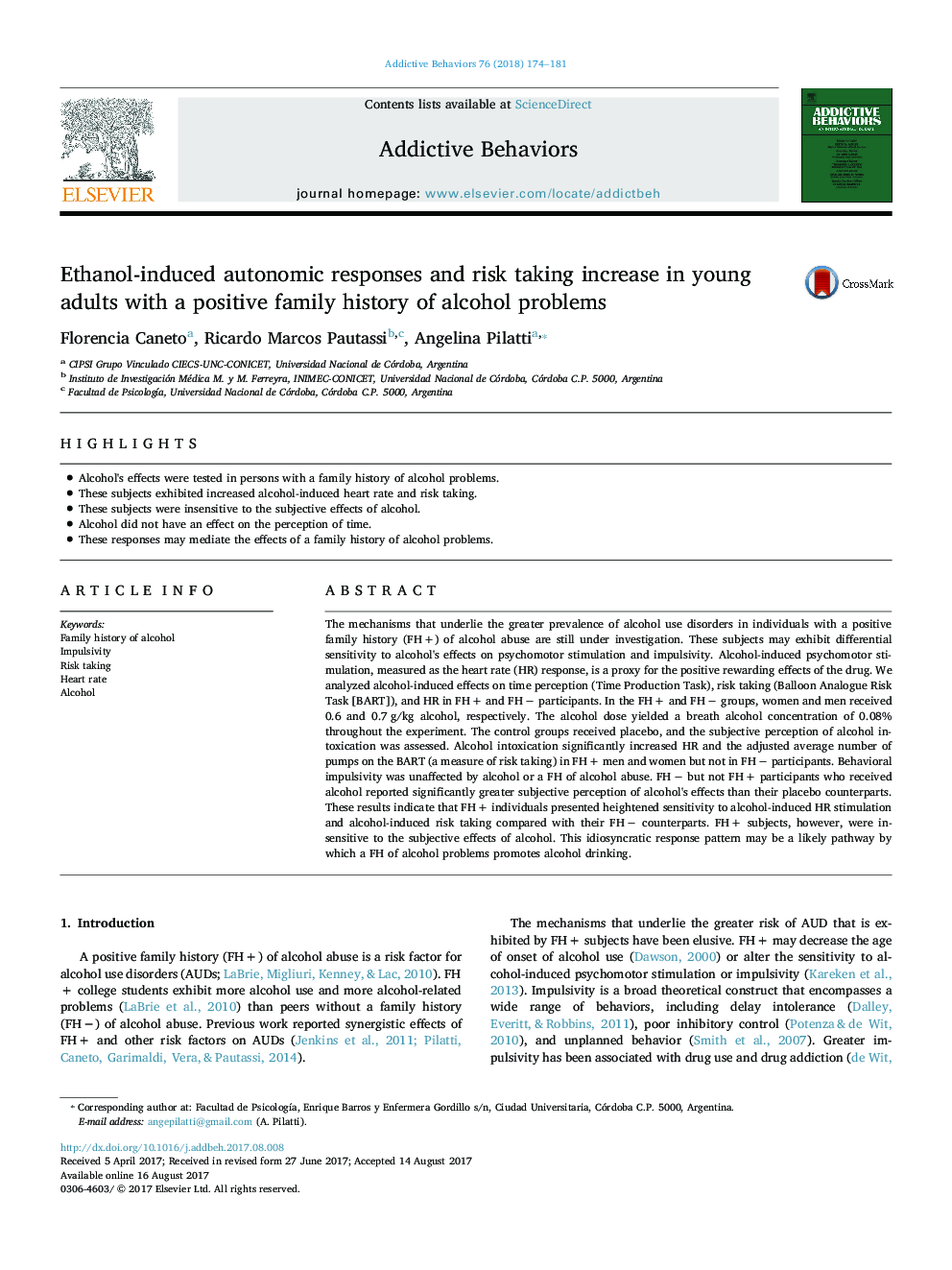| کد مقاله | کد نشریه | سال انتشار | مقاله انگلیسی | نسخه تمام متن |
|---|---|---|---|---|
| 5037622 | 1472495 | 2018 | 8 صفحه PDF | دانلود رایگان |
- Alcohol's effects were tested in persons with a family history of alcohol problems.
- These subjects exhibited increased alcohol-induced heart rate and risk taking.
- These subjects were insensitive to the subjective effects of alcohol.
- Alcohol did not have an effect on the perception of time.
- These responses may mediate the effects of a family history of alcohol problems.
The mechanisms that underlie the greater prevalence of alcohol use disorders in individuals with a positive family history (FHÂ +) of alcohol abuse are still under investigation. These subjects may exhibit differential sensitivity to alcohol's effects on psychomotor stimulation and impulsivity. Alcohol-induced psychomotor stimulation, measured as the heart rate (HR) response, is a proxy for the positive rewarding effects of the drug. We analyzed alcohol-induced effects on time perception (Time Production Task), risk taking (Balloon Analogue Risk Task [BART]), and HR in FHÂ + and FHÂ â participants. In the FHÂ + and FHÂ â groups, women and men received 0.6 and 0.7Â g/kg alcohol, respectively. The alcohol dose yielded a breath alcohol concentration of 0.08% throughout the experiment. The control groups received placebo, and the subjective perception of alcohol intoxication was assessed. Alcohol intoxication significantly increased HR and the adjusted average number of pumps on the BART (a measure of risk taking) in FHÂ + men and women but not in FHÂ â participants. Behavioral impulsivity was unaffected by alcohol or a FH of alcohol abuse. FHÂ â but not FHÂ + participants who received alcohol reported significantly greater subjective perception of alcohol's effects than their placebo counterparts. These results indicate that FHÂ + individuals presented heightened sensitivity to alcohol-induced HR stimulation and alcohol-induced risk taking compared with their FHÂ â counterparts. FHÂ + subjects, however, were insensitive to the subjective effects of alcohol. This idiosyncratic response pattern may be a likely pathway by which a FH of alcohol problems promotes alcohol drinking.
Journal: Addictive Behaviors - Volume 76, January 2018, Pages 174-181
